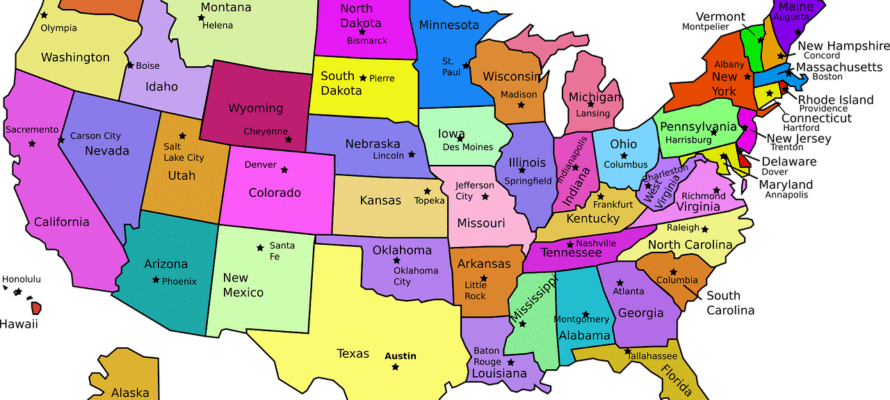
Almost every time I meet with someone to discuss their estate plan, I get questions about what happens with different types of assets, and almost always people want to know what controls who gets an asset. This leads to a discussion of how things can be transferred: via joint ownership, beneficiary designation, the dictates of a will, or the dictates of a trust for property owned by the trust. I also tell people that the order I have listed things above is the order of preferences and hierarchy of how assets will be distributed at the time of death.
Most people seem to understand what I mean when I say joint ownership is the first way property is given to someone at death. If one joint owner dies, then the remaining living owner is the sole owner of an asset. This happens a lot with joint ownership of real estate, or of an investment account or bank account with two owners. It is also why the first spouse passing away seems to be less of a hassle for married couples who have joint assets. The surviving spouse is the sole remaining owner, which makes the transfer of ownership at first death relatively simple. Everything jointly owned just goes to the surviving spouse.
Beneficiary designations are the next step in the hierarchy of distributions upon death. Many accounts have beneficiary designations, IRAs, 401(k)s, health saving accounts, many investment accounts, and life insurance policies are just a few examples of accounts with beneficiary designations. Most people will keep track of their retirement accounts and investment accounts, but life insurance accounts seem to be pushed to the background. Most people get life insurance when they are young, set up a spouse as a beneficiary, and possibly whatever children they have at the time, and then move on with their lives. They will pay the monthly premium, but not give a second thought to who was set up as a beneficiary. When you pass away, life insurance will pay out to the named beneficiaries, so you need to periodically check who your beneficiaries are and ensure those beneficiaries are compatible with the rest of your estate plan.
Your Life Insurance Proceeds Will Go Where You Directed
 Since a life insurance policy has a beneficiary designation, the designated beneficiary will receive the life insurance payout proceeds according to what you have set up with the life insurance company. I have a lot of people who want to have their will or trust dictate what happens to the proceeds of a life insurance policy. If you want your will or trust to dictate what happens to the life insurance proceeds, you need to set up your estate or your trust as the beneficiary of the life insurance policy. If you have a designated beneficiary and that person is different than who is named to receive assets in your will or trust, the named beneficiary in the life insurance policy will receive the payout. The life insurance policy beneficiary designation takes precedence over what the will or trust says. You cannot change a beneficiary designation through your will or trust, you need to change a beneficiary designation with the life insurance company.
Since a life insurance policy has a beneficiary designation, the designated beneficiary will receive the life insurance payout proceeds according to what you have set up with the life insurance company. I have a lot of people who want to have their will or trust dictate what happens to the proceeds of a life insurance policy. If you want your will or trust to dictate what happens to the life insurance proceeds, you need to set up your estate or your trust as the beneficiary of the life insurance policy. If you have a designated beneficiary and that person is different than who is named to receive assets in your will or trust, the named beneficiary in the life insurance policy will receive the payout. The life insurance policy beneficiary designation takes precedence over what the will or trust says. You cannot change a beneficiary designation through your will or trust, you need to change a beneficiary designation with the life insurance company.
You don’t want your life insurance proceeds to go to someone you did not intend. Years ago, I had a friend who told me about his uncle. The uncle had married his high school sweetheart at age 19, just out of high school. He took his first job and got a life insurance policy as part of his benefits. He named the high school sweetheart as his beneficiary. Their marriage lasted only a couple of years, and then he got divorced. He later remarried and had a successful career. When he passed away almost 40 years later, the life insurance policy still had his high school sweetheart’s name on it as the beneficiary. The high school sweetheart, who he had not been married to for decades, received a significant payout from the life insurance company because of the beneficiary designation. The uncle’s will and trust had everything going to his current wife and children, but the will and trust were not able to overcome the beneficiary designation on the life insurance policy because the beneficiary designation dictated where the proceeds should go before the will or trust came into play. You don’t want this to happen to you!
Review Your Beneficiary Designations to Ensure They Work With Your Current Estate Plan
 When you are setting up your estate plan, or revising your estate plan, that is a great time to review your beneficiary designations on life insurance policies. Not everyone is on their second marriage like in the story above, but your beneficiaries may still be outdated. I meet many people who set up a life insurance policy after their first child was born, but the life insurance policy does not account for subsequently born children. If you review your listed beneficiaries and notice that not all children are named, then you can update the named beneficiaries to include all of your children.
When you are setting up your estate plan, or revising your estate plan, that is a great time to review your beneficiary designations on life insurance policies. Not everyone is on their second marriage like in the story above, but your beneficiaries may still be outdated. I meet many people who set up a life insurance policy after their first child was born, but the life insurance policy does not account for subsequently born children. If you review your listed beneficiaries and notice that not all children are named, then you can update the named beneficiaries to include all of your children.
Having three children of my own, I know how hectic it is to have newborns, toddlers, and young children…or even to have teenagers who are just as busy! It is easy to forget who is the beneficiary of a life insurance policy set up long ago, and forgotten, but when you set up your estate plan, or revise it, you should review your beneficiary designations to ensure they line up with your current estate planning objectives and desired beneficiaries, so that the life insurance policies and estate plan all work together.
Not All Beneficiaries Need to Be the Same
 Of course, not all life insurance beneficiaries need to be the same as the other beneficiaries of your estate plan. When couples divorce, courts can often mandate that the divorcing parties purchase a life insurance policy to cover the cost of alimony or child support payments in the case of death of the person paying alimony or child support. In this case, the designated beneficiary of the life insurance policy can be the ex-spouse, or child. This designation can, and should, be different than the rest of the estate plan. I have also seen where a life insurance policy is set up with one child as the beneficiary, and the remaining assets of an estate are set up to go to a different set of people. That way, the one child is given a payout, whereas other children may be given real estate, business property, or other assets that they may be more apt to use in the way the deceased person wants. None of these situations are bad things, as the life insurance proceeds are being used for what they should, but you certainly want to carefully consider how life insurance payouts are part of and impact the rest of your estate plan.
Of course, not all life insurance beneficiaries need to be the same as the other beneficiaries of your estate plan. When couples divorce, courts can often mandate that the divorcing parties purchase a life insurance policy to cover the cost of alimony or child support payments in the case of death of the person paying alimony or child support. In this case, the designated beneficiary of the life insurance policy can be the ex-spouse, or child. This designation can, and should, be different than the rest of the estate plan. I have also seen where a life insurance policy is set up with one child as the beneficiary, and the remaining assets of an estate are set up to go to a different set of people. That way, the one child is given a payout, whereas other children may be given real estate, business property, or other assets that they may be more apt to use in the way the deceased person wants. None of these situations are bad things, as the life insurance proceeds are being used for what they should, but you certainly want to carefully consider how life insurance payouts are part of and impact the rest of your estate plan.
Don’t Let Hidden Beneficiary Designations Surprise You
None of this means that you should be afraid of beneficiary designations, or that you should be concerned about hidden beneficiary designations. I am simply warning you to check the beneficiary designations of your life insurance policies to ensure the beneficiary designations are accomplishing the goals and objectives of your current estate plan. You want your asset to go where you want, and checking where your life insurance is going is a big part of that for many people. Just check where life insurance money is going, and make sure it is in line with the rest of your estate plan, and you will be set up correctly!

 720-730-7274
720-730-7274









